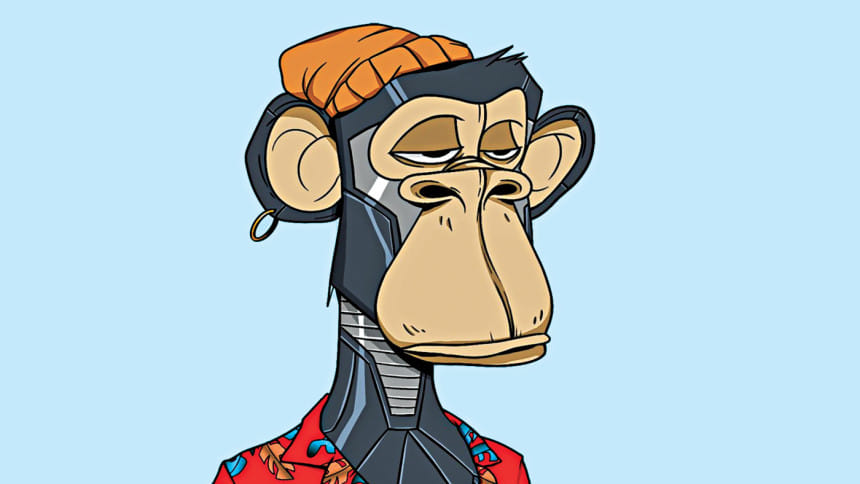What are Bangladeshi artists saying about NFT?

With Facebook's announcement of Metaverse, the concept of NFT has gotten a new buzz.
NFT stands for non-fungible token. Simply put, it's a unique digital token that can't be reproduced or replaced. NFTs can be anything – digital art, videos, music – even social media posts.
Wikipedia co-founder Jimmy Wales recently sold the first-ever Wikipedia article for 750,000 USD.
How does a post I see online sell for close to a million dollars? How does an artist live off selling pictures that I can just download from Google, free of cost? The good news is, the founders of NFTs have settled this debate.
When we download a picture from Google, we can't really claim ownership of it. It's like buying a fake portrait of Vincent van Gogh's "Starry Night". Everyone can get a version of it, but only a museum in New York has the original piece.
NFT is usually linked to cryptocurrency and blockchain technology. Due to cryptocurrency's ban in Bangladesh, digital artists use mobile banking facilities to sell their art. Most of the artists here are setting up their shops using social media platforms.
Fariha Hossain Lamia, who professionally goes by "Artist wali", shares, "When I started almost two years back, I too was exploring the whole phenomena regarding digital art."
She said that her family and peers became familiar with the concept through her work. "But it was something they never thought was possibly a 'thing' one can do as a job. Initially, it was a hobby to me as well," she says. After getting commissioned work, she is now considering taking the job seriously in the future.
Asifur Rahman, the creator of Arts by Rats, says that monetisation avenues are rare in Bangladesh; raising money via Kickstarter often becomes problematic due to the lack of available payment mediums.
"To make art a career in Bangladesh there are viable avenues but NFT, for the time being, is not the route if you want to be a full-time artist," he says.
Sometimes people fail to comprehend the value of digital artwork, assuming that since the work was created with the help of a computer, it must have been easy to create.
Fariha debunks the myth here, saying, "One can't do digital art unless they have a good perception of colour, light, and shadow. You must have the traits of a traditional artist to be a digital artist."
Asifur comments that the absence of physicality of his artworks has never been an issue for his clients, who are typically marketing agencies, graphic design firms, and newspapers. He also does custom paid work for individuals.
"I think freelancers can expect to work in lots of NFT projects in the coming days, seeing that Metaverse isn't only about digital art. There will be increasing demand for artists with experience in 3D, animation, pixel art, and many other new and invented types of art," he says.
Will Bangladeshi artists be able to grasp the opportunities and become pioneers of a new era? Only time will tell.
Sabiba is a Hufflepuff who plans to go into hibernation every winter but never succeeds. Send help at fb.com/Sabibastro

 For all latest news, follow The Daily Star's Google News channel.
For all latest news, follow The Daily Star's Google News channel. 



Comments